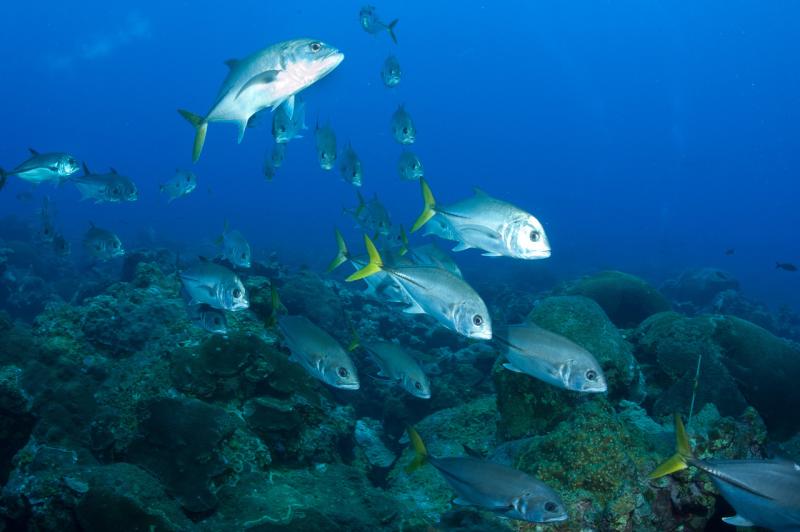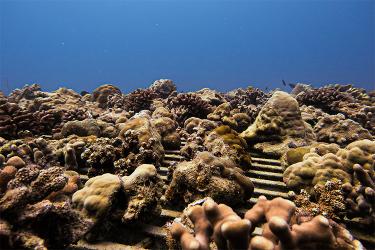The report includes information on how climate-related risks could be reduced or avoided, and it builds upon the assessment of physical climate changes in the Fourth National Climate Assessment Volume 1 released in 2017. This report was developed with significant NOAA involvement.
Some of the key findings regarding climate impacts, risks and adaptation for oceans and marine resources, ecosystems and coasts are listed below.
Ocean Ecosystems Being Disrupted
The nation’s valuable ocean ecosystems are being disrupted by increasing global temperatures through the loss of iconic and highly valued habitats, changes in species composition and changing food web. (Chapter 9: Oceans and Marine Resources)
Marine Fisheries at High Risk
Marine fisheries and fishing communities are at high risk from climate-driven changes in the distribution, timing and productivity of fishery-related species. (Chapter 9: Oceans and Marine Resources)
Impacts of Extreme Events
Marine ecosystems and the coastal communities that depend on them are at risk of significant impacts from extreme events with combinations of very high temperatures, very low oxygen levels, or very acidified conditions. (Chapter 9: Oceans and Marine Resources)
Loss of Ecosystem Services
The resources and services that people depend on for their livelihoods, sustenance, protection, and well-being are jeopardized by the impacts of climate change on ecosystems. (Chapter 7: Ecosystems, Ecosystem Services and Biodiversity)
Challenges for Natural Resource Management:
Natural resource management strategies are increasingly challenged by the impacts of climate change. (Chapter 7: Ecosystems, Ecosystem Services and Biodiversity)
NOAA Fisheries and partners are working to better understand, prepare for and respond to the impacts of changing climate on coastal and ocean resources and the people, businesses and communities that depend on them. Some activities include tracking shifts in species distributions, conducting vulnerability assessments, researching climate impacts, developing forecasts and assessing best management strategies under changing ocean conditions as called for in the NOAA Fisheries Climate Science Strategy.



